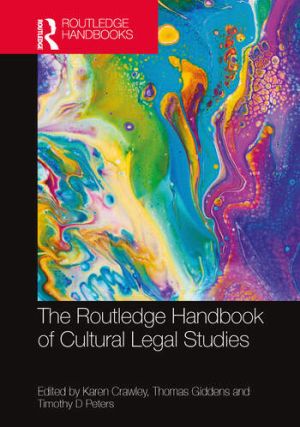
This handbook provides a comprehensive introduction to the cutting-edge field of cultural legal studies.
Cultural legal studies is at the forefront of the legal discipline, questioning not only doctrine or social context, but how the concerns of legality are distributed and encountered through a range of material forms. Growing out of the interdisciplinary turn in critical legal studies and jurisprudence that took place in the latter quarter of the 20th century, cultural legal studies exists at the intersection of a range of traditional disciplinary areas: legal studies, cultural studies, literary studies, jurisprudence, media studies, critical theory, history, and philosophy. It is an area of study that is characterised by an expanded or open-ended conception of what ‘counts’ as a legal source, and that is concerned with questions of authority, legitimacy, and interpretation across a wide range of cultural artefacts. Including a mixture of established and new authors in the area, this handbook brings together a complex set of perspectives that are representative of the current field, but which also address its methods, assumptions, limitations, and possible futures.
Establishing the significance of the cultural for understanding law, as well as its importance as a potential site for justice, community, and sociality in the world today, this handbook is a key reference point both for those working in the cultural legal context – in legal theory, law and literature, law and film/television, law and aesthetics, cultural studies, and the humanities generally – as well as others interested in the interactions between authority, culture, and meaning.